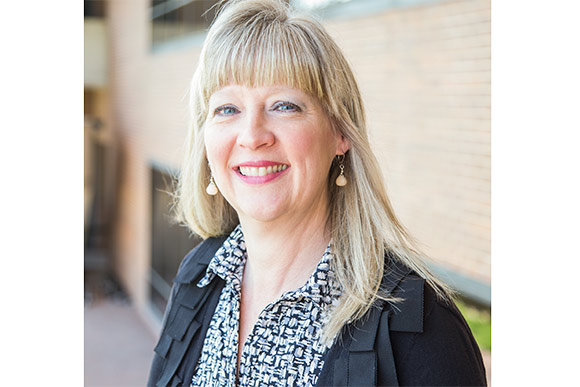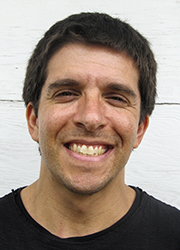Tri-C instructor wins award for drawing students into unheralded profession
 Kelly Moranz
Kelly Moranz
Stenographic court reporters must have quick fingers, exceptional listening abilities and a microscopic attention to detail. Over the last 10 years, Kelly Moranz has been creating the programs and curriculum that teach these skills to potential stenographers attending Cuyahoga Community College (Tri-C).
Moranz's decade of service was recognized last month with an award from the the Journal of Court Reporting (JCR), a publication of The National Court Reporters Association (NCRA). The award highlighted the longtime program manager and Tri-C faculty member's work in leading students to lucrative jobs as court reporters, legal videographers and voice captioners.
Moranz is also in charge of recruiting trainees for a profession that is not exactly at the top of a job seeker's most-wanted list. "People don't roll out of bed and say they'll be a court reporter," says the Old Brooklyn resident. "We have to get out there and make it known."
The JCR award is student-driven, making the honor especially meaningful. "I can't put into words what it means to be nominated by a student," Moranz says. "Giving them the drive to succeed is just my job."
In court reporting, professionals use a stenotype machine or voice-writing technology to instantaneously capture words spoken at a legal proceeding or other event. Tri-C offers training on steno and specialized voice-capturing software that allows individuals to transfer speech into shorthand at a minimum of 225 words-per-minute. Students spend two to three hours daily sharpening both their speed and accuracy to keep pace with an average rate of speech that clocks in at 160 to 180 words-per-minute.
"It's a rare skill that's in demand," says Moranz of a vocation projected to have 5,500 new openings nationwide by 2018. "You've got to listen and write everything being said in a language we teach you. I like to say that court reporters are the original texters."
Moranz spearheads mentoring efforts as well as a 45-member captioning and court reporting club. She's also presented information about court reporting to Tri-C's Women in Transition program, which addresses women changing occupations or pursuing second careers.
With outreach being a key aspect of the job, Moranz has spoken at high schools to recruit those interested in the opportunity. Program grads may move into a court setting to record real-time transcriptions of a deposition or trial. Outside a courtroom, stenographers are employed by businesses, where their work is used for meetings and events. Closed-captioning for live television programs, speeches and religious services is another expanding area of the field.
Whatever job a graduate chooses, they should have a solid grasp of grammar, punctuation and spelling, along with high concentration levels and a willingness to spend hours polishing their skill set, says Moranz. The end result can be a career with an initial salary of $45,000 to $55,000, with top stenographers earning up to six figures.
For her part, Moranz will be happy if her award sheds some light on an oft-underappreciated career path.
"I'm proud to have the opportunity to change peoples' lives with an exciting profession," she says.
This story was made possible by a partnership with Cuyahoga Community College.

